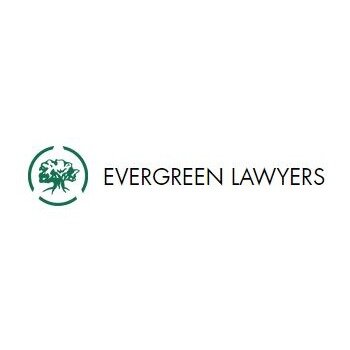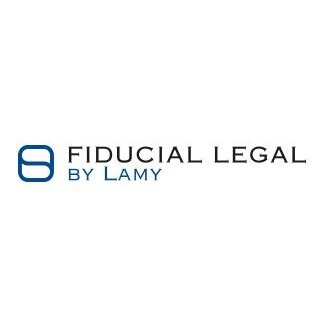Best Trusts Lawyers in France
Share your needs with us, get contacted by law firms.
Free. Takes 2 min.
Or refine your search by selecting a city:
List of the best lawyers in France
About Trusts Law in France
France is traditionally a civil law jurisdiction and does not recognize common law trusts in the way that countries such as the United States or the United Kingdom do. Instead, France has its own legal structures for managing assets, such as fiducie, which is a contract-based arrangement somewhat akin to a trust. The fiducie allows a person (the settlor) to transfer assets to another person or entity (the trustee) who manages them for the benefit of a third party (the beneficiary). This mechanism has gained some recognition, particularly in corporate and financial contexts, but its use in personal estate planning remains limited.
Why You May Need a Lawyer
Several common situations may necessitate legal advice regarding trusts in France:
- Inheritance Planning: If you wish to structurate your estate to ensure that your heirs are taken care of according to your wishes.
- Asset Protection: To legally protect your assets from creditors or during litigation.
- Corporate Transactions: When dealing with complex financial or corporate structures, including mergers and acquisitions.
- Cross-border Situations: For individuals with assets in multiple jurisdictions, navigating international laws related to trusts can be challenging.
- Understanding and Compliance: To ensure compliance with local laws and regulations if you are setting up a fiducie.
Local Laws Overview
Trust law in France is embodied primarily through the concept of the fiducie. Key aspects of the fiducie include:
- Contractual Basis: A fiducie must be established by a formal contract, often requiring notarial involvement.
- Limited Use: Initially permitted only for financial institutions, recent regulations have expanded its use in business contexts but still limit its application in personal estate planning.
- Tax Implications: France has specific fiscal regulations governing fiduciary arrangements, and understanding these can be crucial for tax planning.
- Legal Constraints: Strict regulations govern the creation, duration, and purpose of a fiducie.
- Registration: Fiducie arrangements often need to be registered with the French authorities to ensure traceability and compliance.
Frequently Asked Questions
What is a fiducie?
A fiducie is a French legal instrument similar to a trust, involving the transfer of property to a fiduciary for management on behalf of a third party.
Can I create a trust in France like in the UK or USA?
No, traditional common law trusts are not recognized in France. Instead, you may consider setting up a fiducie.
Who can set up a fiducie?
Initially limited to banks and financial institutions, recent developments have expanded the scope to other entities, including individuals, albeit with restrictions.
What are the tax implications of setting up a fiducie?
Fiducies are subject to specific French tax rules, which can impact how income and capital gains are taxed. Consultation with a tax advisor is recommended.
How long can a fiducie last?
The duration of a fiducie is typically governed by statutory limits, often not exceeding 99 years, and is defined in the fiducie contract.
Is a fiduciary liable for losses?
Yes, a fiduciary may be held liable for mismanagement, failure to comply with terms, or breaches of fiduciary duty.
Can a fiducie be modified after it is established?
Modifications to a fiducie generally require the agreement of all parties involved and must comply with applicable laws.
What happens to the assets in a fiducie when it ends?
Upon termination, assets are typically distributed to the designated beneficiaries as defined in the fiducie terms.
Are cross-border trusts valid in France?
France applies the Hague Convention on the Law Applicable to Trusts and on their Recognition, allowing recognition of foreign trusts under certain conditions.
How do I choose a fiduciary?
Choose a fiduciary based on trustworthiness, expertise, and the ability to manage assets responsibly according to legal obligations.
Additional Resources
For further assistance and information on trusts and related legal advice in France, consider reaching out to the following resources:
- Notaires de France: An organization of public officials who can offer legal advice on fiduciary arrangements and estate planning.
- Chambre des Métiers Fiduclaires: An association representing fiduciary professionals who can provide guidance on setting up and managing fiducies.
- The French Ministry of Justice: Offers official publications and resources regarding fiducie laws and their implementation.
Next Steps
If you require legal assistance with trusts in France, consider the following steps:
- Research and Contact Professionals: Identify and consult with qualified legal professionals or notaries who specialize in fiduciary law.
- Assess Your Needs: Clearly outline your objectives and financial situation to better communicate your needs to advisors.
- Prepare Relevant Documents: Gather and organize any necessary documentation related to your assets and intentions.
- Legal Consultation: Schedule meetings to discuss potential strategies and understand the implications of setting up a fiducie.
- Regular Review: Once established, regularly review your arrangement to ensure it continues to meet your objectives and complies with legal requirements.
Lawzana helps you find the best lawyers and law firms in France through a curated and pre-screened list of qualified legal professionals. Our platform offers rankings and detailed profiles of attorneys and law firms, allowing you to compare based on practice areas, including Trusts, experience, and client feedback.
Each profile includes a description of the firm's areas of practice, client reviews, team members and partners, year of establishment, spoken languages, office locations, contact information, social media presence, and any published articles or resources. Most firms on our platform speak English and are experienced in both local and international legal matters.
Get a quote from top-rated law firms in France — quickly, securely, and without unnecessary hassle.
Disclaimer:
The information provided on this page is for general informational purposes only and does not constitute legal advice. While we strive to ensure the accuracy and relevance of the content, legal information may change over time, and interpretations of the law can vary. You should always consult with a qualified legal professional for advice specific to your situation.
We disclaim all liability for actions taken or not taken based on the content of this page. If you believe any information is incorrect or outdated, please contact us, and we will review and update it where appropriate.
Browse trusts law firms by city in France
Refine your search by selecting a city.












